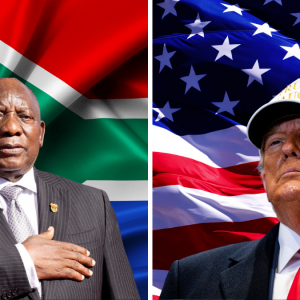This article originally appeared in the Winter 2013 print edition, which can be found here.
Walking through a neighborhood in England while campaigning for the 2010 parliamentary elections, Gordon Brown encountered Gillian Duffy, a loyal Labor Party voter. Brown, former Prime Minister and leader of the Labor Party, was likely expecting a normal campaign meet-and-greet with voters. However, the situation quickly deteriorated when Duffy questioned Brown, “But all these Eastern Europeans that are coming in, where are they flocking from?” Brown aptly maneuvered around the question, but after entering his car, he was recorded saying, “She was just a sort of bigoted woman.” Brown lost the election, ending Labor’s thirteen years in power. Many commentators argued that his encounter with Duffy played a large part in his loss. The exchange was more than simply a gaffe on Brown’s part; it was symbolic of a changing landscape in English and European politics more broadly.
Numerous far-right movements spawned in Europe in recent years, but the groups that provide the most interesting examples are the United Kingdom and France. Parties like the National Front in France and the British National Party (BNP) and the United Kingdom Independence Party (UKIP), have all played increasingly important roles in the political discourse. The National Front has re-emerged as a competitive party on the national level winning a couple of seats in the National Assembly, and the BNP and UKIP have won seats representing Britain in European Parliament. But questions of how and why these parties have regained a position in the national debate are still yet to be answered.

Often these parties capitalize on disaffected voters who believe they are not represented by ‘mainstream’ political parties. These dedicated voters are probably right in that respect. These communities are largely working class and have been left behind in the post-industrial economies of Western Europe. Welfare programs for working class groups in these countries have been dismantled, and labor protection has been eroded. Much populist rhetoric is employed by far-right parties in their efforts to organize voters, appealing to themes of broad and ambiguous promotion of welfare for the domestic working class. However, this rhetoric lacks substantive proposals for meaningful structural changes to their respective economies. Instead, they place the blame, more often than not, on immigrants and Islamic culture.
Despite their limited size and influence in European politics, these parties have not been ineffective in achieving their presumed goals. Marc Morje Howard, Professor at Georgetown University, measured the relationship between far-right parties and citizenship policy. Howard found a relationship between the presence of these parties and policy outcomes which reflect a generally more restrictive policy toward immigration. He argues that this is a result of parties being able to more readily mobilize a latent sentiment against open immigration policies. The limited, but very real, success of these parties, with their anti-immigrant platform, stands as demonstration that they represent a devoted bloc of voters. This communicates a general anti-immigrant sentiment to European politicians who would otherwise favor open immigration and citizenship policies.
Curiously, in Britain, political pressure from the far-right has meant that the left has had to re-evaluate its rhetoric and political platforms. Intuitively the fact that a far-right group causes political difficulty for the left makes little sense. But the constituencies that these far-right parties mobilize come from a background that has historically voted with the political left, the working class, not the wealthy. Labor, which has been seen as the party in Britain to defend liberal immigration laws, has had to re-evaluate its political platforms and rebrand itself as a more restrictive party when it comes to immigration in Britain.
In France, the popular ‘Jacobin’ attitude favors cultural assimilation, and frowns upon multiculturalism. But the support that the National Front has garnered has made these issues even more salient in the French discussion, and more politically consequential. Maybe the most notable result of pressures from the French far-right is the infamous French ban on conspicuous religious symbols in schools. Although the law is said to apply equally to all religions in France, it primarily affects non-Western religious groups. Critics have argued that the policy is merely an appeal to the sectors of society that the National Front has garnered support from.
A number of explanations for why these parties have re-emerged have been employed. Some argue that the European far-right is a result of economic down-turn, which makes sense with parties like the BNP emerging on the European scene almost spontaneously. However, these arguments fail to account for why issues of ethnicity become so politically salient. A number of other factions could emerge on the basis of economic downturn. However, surveys of European countries attitudes toward immigrant groups help provide insight. Eurobarometer surveys suggest that Europeans are already somewhat hostile to policies favoring multiculturalism and open immigration. Forty-five percent of Europeans believe that immigrants constitute a threat to security, while only thirty-seven believe otherwise. Forty-nine percent of Europeans believe that immigrants increase unemployment, while thirty-six percent do not. Thus economic downturn only accounts for part of the story; genuine underlying currents of ethnocentrism already exist, which allows for successful employment of intolerant rhetoric by the demagogues leading these far right groups. The recent downturn has provided the conditions in which ethnocentric policies have been a relatively strong political strategy.
With economic growth looking dismal in Europe, it should be interesting to see how these parties cultivate their support. Elections for European Parliament in 2014 will be of huge importance for these parties, as they gained a great deal of electoral support in the previous elections for European Parliament. Whether or not these parties succeed in elections for European Parliament is integral to the future of political rights for immigrant and minority groups in Europe. If far-right parties continue to succeed, the political calculations made by major, mainstream parties will adjust accordingly, which in turn will likely lead to the disenfranchisement of minorities in Europe.





Be First to Comment